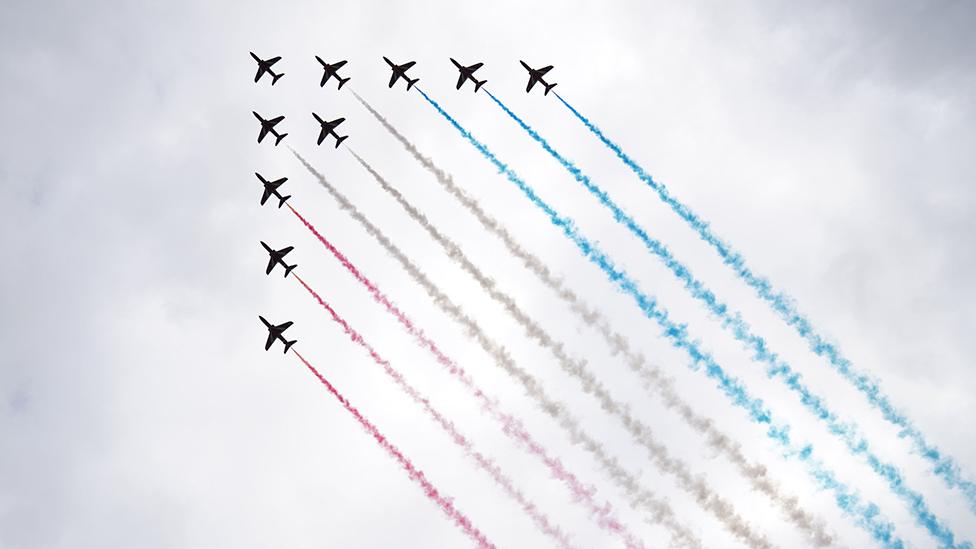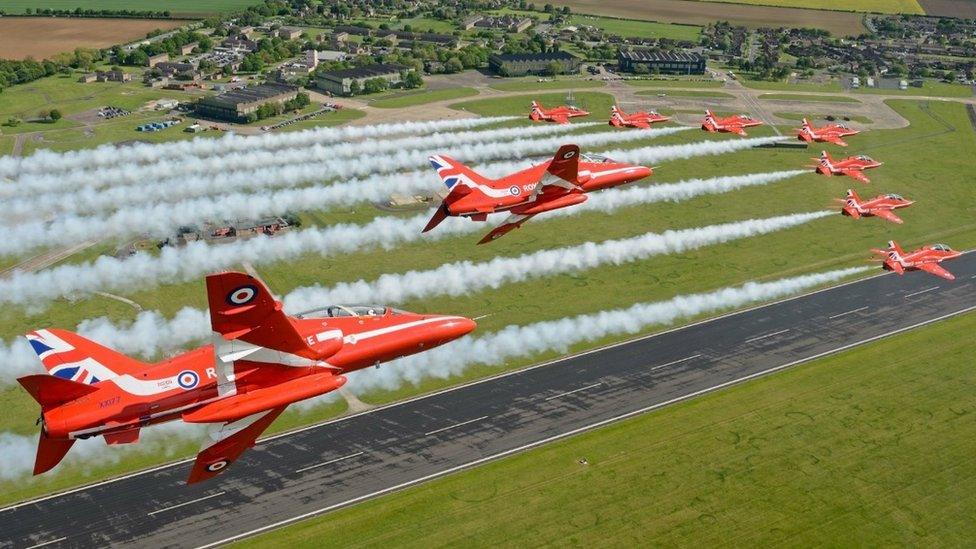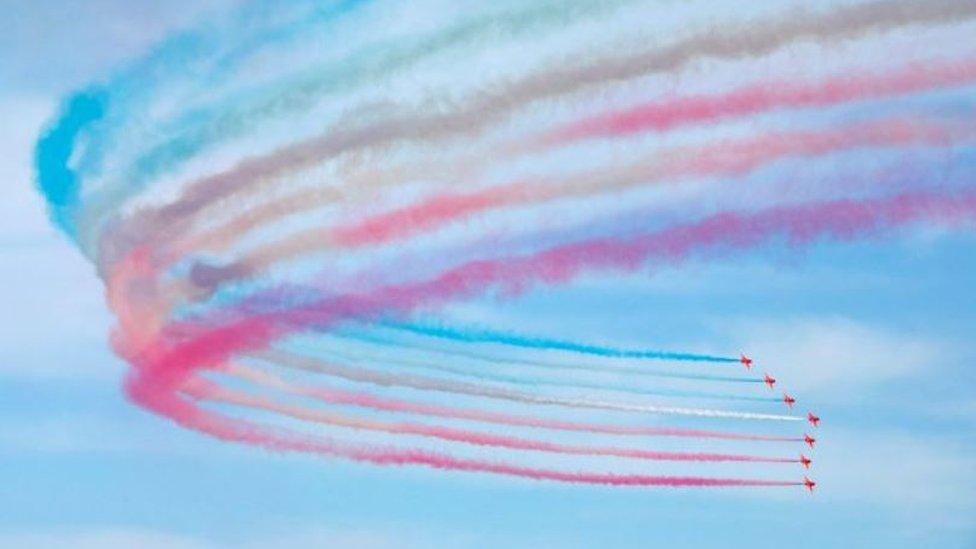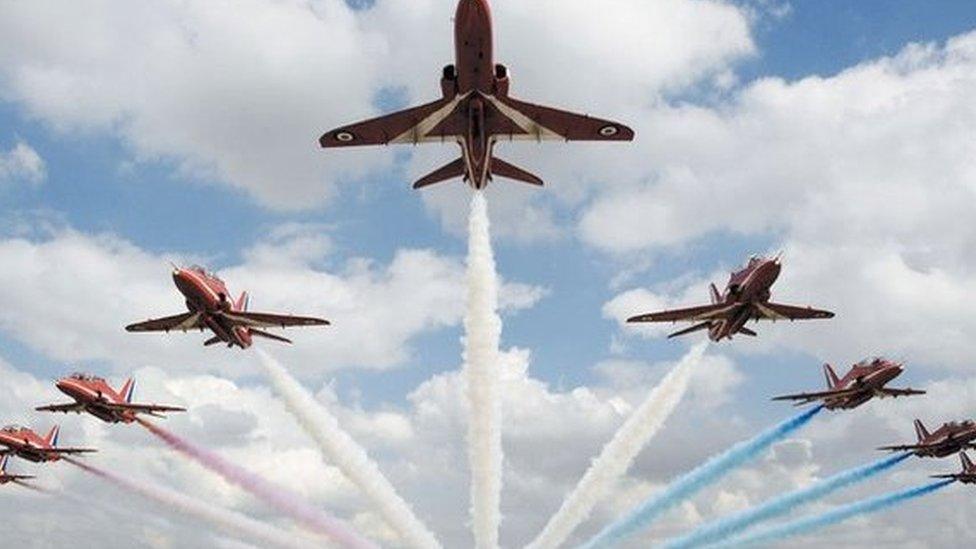Red Arrows aircraft could use 'green' smoke in displays
- Published

The Reds' aircraft use a combination of diesel and dyes to produce their red, white and blue trails
Aircraft used by the world famous Red Arrows could use more environmentally friendly smoke in future displays.
The Lincolnshire-based aerobatic team is seeking a "greener" alternative to its red, white and blue trails, which are made of 75% diesel and 25% dye.
The Ministry of Defence has appealed for potential suppliers to get in touch, documents from its Defence Equipment and Support unit show.
In 2019, the Reds used 643,000 litres of diesel and 63,000 litres of dye.
The move is part of the RAF's wider drive to become more environmentally friendly.
Air Chief Marshal Sir Mike Wigston, head of the service, has said he wants the RAF to be "the first net-zero air force by 2040".
An RAF source told the Press Association: "As global ambassadors for Britain and the RAF, the Red Arrows look for excellence in all they do. For them to consider using environmentally friendly smoke dye shows they are continuing to lead the field.
"Always red, white and blue, the addition of green credentials is a great thing."
The Defence Equipment and Support unit's request to potential suppliers notes the project is in "an early concept phase" and welcomes responses which "articulate what, if any, environmentally friendly solutions are currently under development or available in the market".

The Red Arrows display team is currently based at RAF Scampton in Lincolnshire
According to the RAF's website, the display team has its own dedicated dye technicians responsible for mixing the colours and placing them and diesel in specially modified pods on each aircraft.
The dye and diesel is injected into the hot exhaust from the jet engine by the pilot pushing one of three buttons on the control column for each of the colours.
Based at RAF Scampton near Lincoln, the squadron's Hawk training aircraft and pilots perform around the world and the team has flown over 5,000 displays in 57 countries since it was formed in 1965.

Follow BBC East Yorkshire and Lincolnshire on Facebook, external, Twitter, external, and Instagram, external. Send your story ideas to yorkslincs.news@bbc.co.uk, external.
Related topics
- Published20 May 2021

- Published19 May 2020
